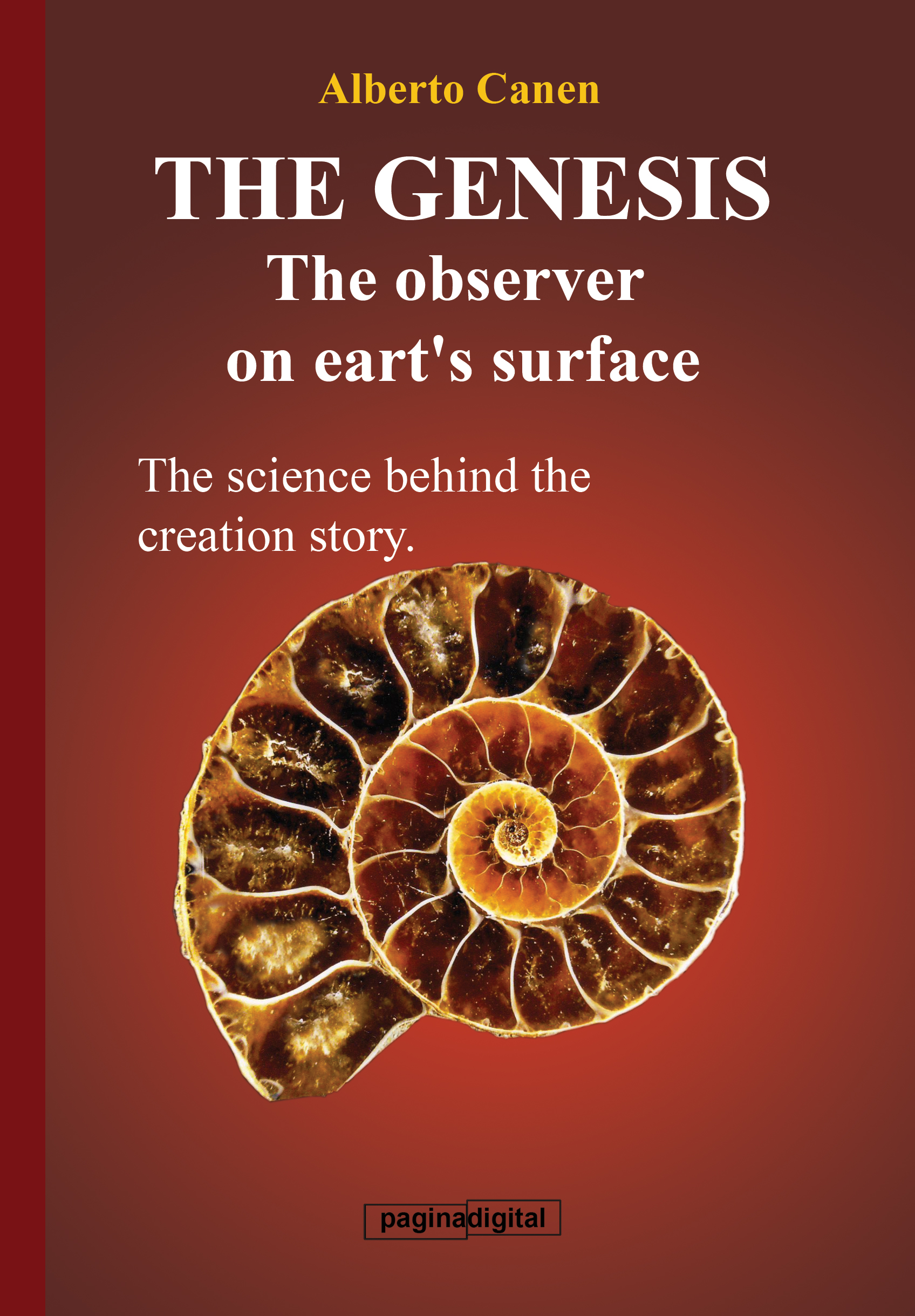
More than 300,000 books sold!
Genesis, the seven days of Creation ... Where does the text that makes up the first part of the Bible come from?
Is its text a mere introductory poem ... or is it a narrative?
What's behind its words?
Alberto Canen has found an alternative way to answer these and other questions in the Genesis. He has found a route no one had been to before, and invites the reader to discover it and make their findings with him.
The author has found that hidden in the bottom of the plot there is someone.
Someone who observes; someone who tells. Someone who tells what he observes. And a place, a location from which he observes.
The location of the observer.
The key to an exciting puzzle.
The Genesis has been a mystery for thousands of years. No one had been able to understand what the text spoke about, whether it was just an introductory poem to the Holy Scriptures, or it actually contained information about the Creation.
The text of Genesis divided the waters of creationists and scientistics long until today.
With this book I hope to dilute this separation between scientistics and creationists since I have discovered the key that unifies both worlds.
I think the key to the mystery of Genesis is to understand that it is narrated by someone. A narrator of Genesis. Someone who observes the vision God gives him and from there he tells what he observes and he observes it from his human and earthly location.
This earthly and accurate location is the key to understanding Genesis.
More than 300,000 books sold
Current Sales Rank: #28,401 in Kindle Store (Amazon)
Then we face the first major dilemma typical of Genesis: how light can be created before the stars? (This obviously rhetorical question is usually accompanied by some skeptical gesture, knowing boastful look and intent to end the conversation). Yes, it is true, it cannot be, but - there is always a but- what if we placed the viewer in the exact location where the primordial swirl was, the one which will lead to our planet? It is obvious that our observer could have seen the light, but would have been unable to know where that light had come from, because -as noted earlier- the "dust storm" would have prevented it. Also, as he would be “standing” on the swirling, he would perceive the passage of day-night, light-darkness, due to its rotation. This person -because he´d be standing, situated, on the swirling- would turn with him, and therefore, a moment he would be facing the light, and the next, he would have his back to it.
Here, we can already realize that it is essential, fundamental, the existence of an observer and -even more-its location, in order to understand the Genesis.
This individual who notes, and then tells what he has seen, is watching it from a particular site, from a specific location. He is somewhere stationed at the time when he "watches", at the time of receiving the vision, the revelation. And that place, that location where he is, is what makes the difference; that's what makes us believe that the description of Genesis may make sense; it is the key to the riddle. The key that opens a world of possibilities
| Language | Status |
|---|---|
|
French
|
Already translated.
|
|
German
|
Already translated.
Translated by Janardhan Marappa
|
|
Italian
|
Already translated.
|
|
Portuguese
|
Already translated.
Translated by Marquielly Lopes Gonçalves de Oliveira
|
|
Spanish
|
Already translated.
|